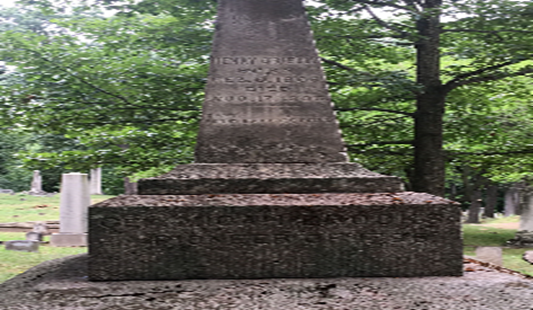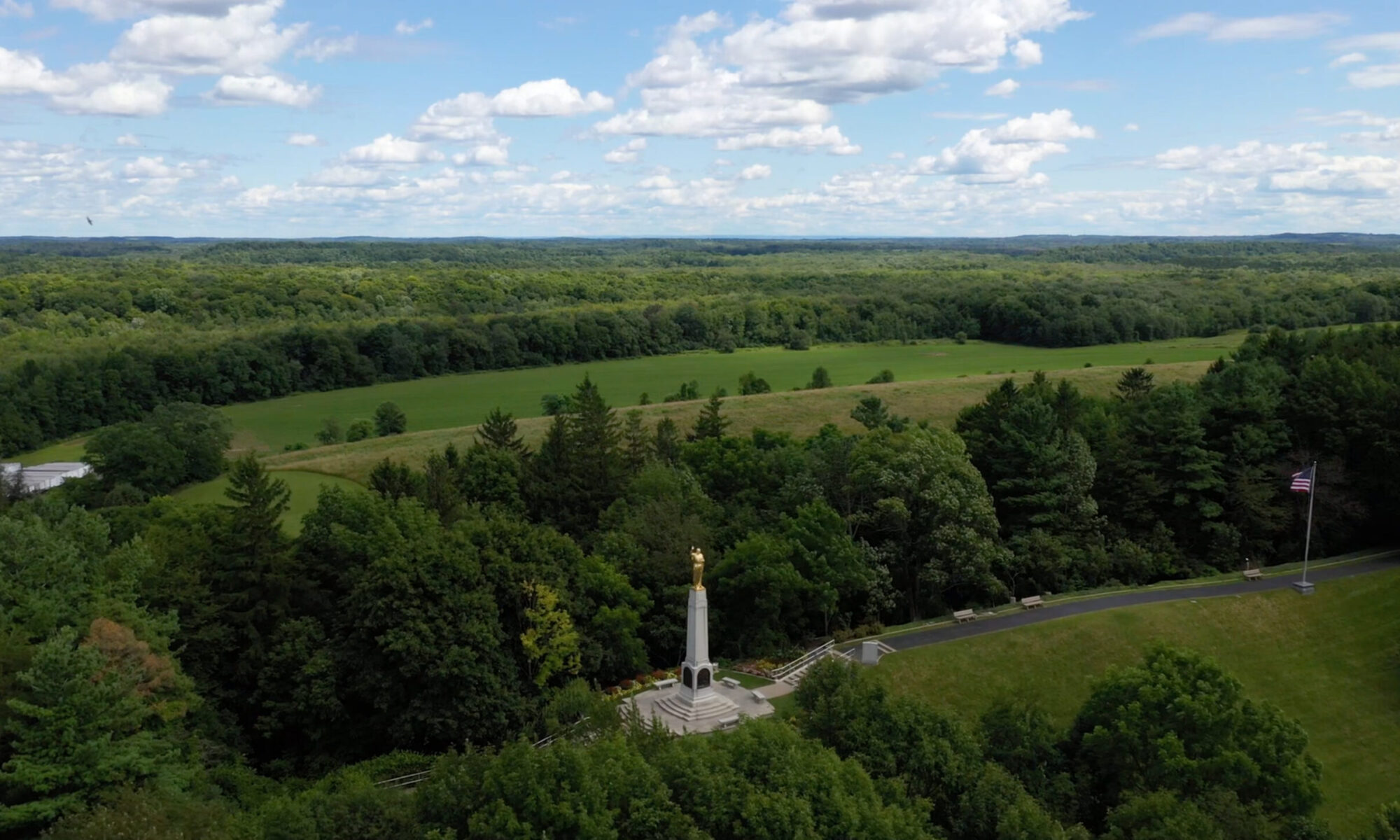
Henry O’Reilly, son of Patrick O’Reilly and Alicia Anne Leadbeater, was born on February 6, 1806 in Carrickmacross, Monaghan, Ireland. Henry published the first daily newspaper west of the Hudson River. He was a builder of pioneer telegraph lines that eventually consolidated to create the Western Union, and an incorporator of the Pacific Cable Company.
In 1816, ten year old Henry migrated with his mother and sister to New York City. His father was a merchant but failed in business after the Napoleonic War. He was confined to a debtors’ prison and did not join his family in New York City. Upon reaching the big city, Henry was apprenticed to Baptiste Irvine, editor of the New York Columbian. He was given room and board, but not paid for his apprenticeship.[1]
In 1823, Henry was employed at the New York Patriot. While working for this newspaper, he became involved in politics and pushed forward the candidacy of Andrew Jackson for US President.[2] In 1824, Henry visited Washington with his employer, Colonel Charles K. Gardner. In the capitol, Henry met Andrew Jackson.
In 1824, Henry moved to Kinderhook, New York and became the printer of the Herald. As a printer, he formed a connection with Martin Van Buren. Henry claimed that he helped Van Buren gain his footing in a political career.[3]
Two years later, Henry moved to Rochester and became editor of the Rochester Daily Advertiser.[4]On October 21, 1826, he published the first issue of the Advertiser.[5]
Henry was mixed up in scandals surrounding the death of William Morgan. He published a few comments made by Thurlow Weed regarding finding the body of Morgan. Weed refuted the comment and charged Henry with libel. The libel lawsuit was pending for thirteen years. In July 1827, Henry withdrew from the suit, claiming poor health as his reason. He went back to New York City and was hired to work in the Methodist Printing Office.[6]
On December 3, 1830, Henry married Marcia F. Brooks (1807-1882), daughter of a large land-owner in East Bloomfield, New York. Henry and his bride settled in Brooks Grove to be near her parents. Henry served as the postmaster of the Brooks Grove Village.[7]
By 1838, he and his family were back in Rochester. By 1855, they were in New York City. By 1860, they had returned to Rochester. The remainder of his life, Henry went back and forth from Rochester to New York City, always working as either a newspaper man or a telegrapher.
In 1878, Henry reflected on own first experience with the Book of Mormon: “My criticism on the Mormon Bible, when it first appeared from the press . . . was not such as would titillate me to be ranked as a saint in the Utah calendar, but yet they [Joseph Smith and Hyrum Smith] if not others of the sect, treated me kindly.” Yet he wrote “Origin of Mormonism: First public al— to the Mormon Bible. Written by Henry O’Reilly, when he was editor of the Rochester Daily Advertiser and Republican.
Blasphemy—“Book of Mormon” alias “The Golden Bible.”
The Book of Mormon has been placed in our hands. A viler imposition was never practiced. It is an evidence of fraud, blasphemy and credulity, shocking to the Christian and moralless. The author and propriety is one “Joseph Smith, Jr.”—a fellow who, by some hocus pocus, acquired such an influence over a wealthy farmer of Wayne County that the latter mortgaged his farm for $3,000 which he paid for printing and binding five thousand copies of the blasphemous work. The volume consists of about 600 pages, and is divided into the books of Nephi, of Jacob, of Mosiah, of Alma, of Mormon, of Ether, and of Helaman.—“Copy right Secured,” The style of the work may be conjectured from the “preface” and “testimonials,” which we subjoin.
Henry died on August 17, 1886 in Rochester at age eighty. He was buried in the Mount Hope Cemetery in Rochester.
[1]Dexter Perkins and Blake McKelvey, Rochester History, January 1945.
[2] Perkins and McKelvey, Rochester History.
[3] Perkins and McKelvey, Rochester History.
[4] Perkins and McKelvey, Rochester History.
[5] Perkins and McKelvey, Rochester History.
[6] Perkins and McKelvey, Rochester History.
[7] Perkins and McKelvey, Rochester History.
